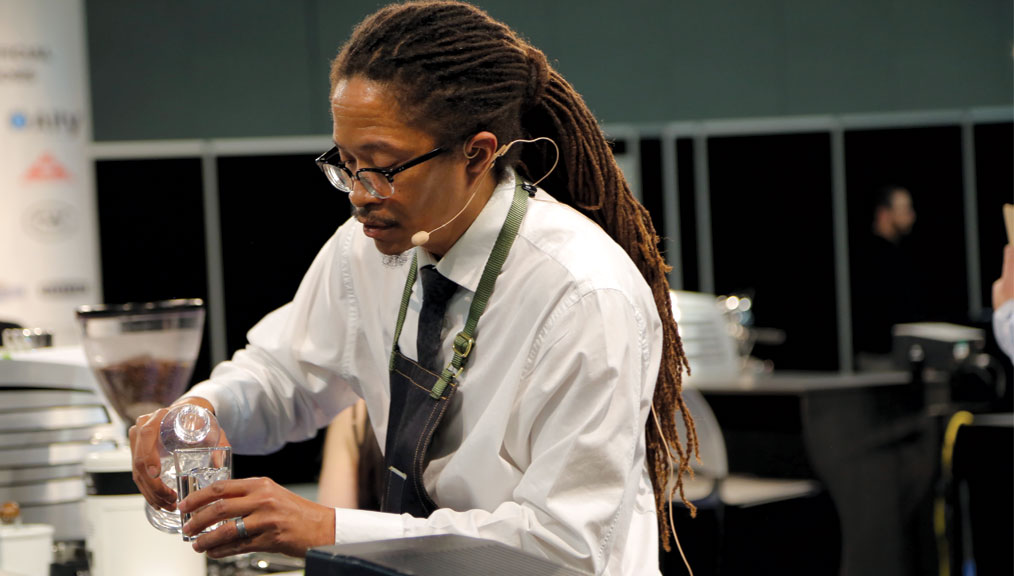(Photo: courtesy of Counter Culture Coffee.)
[I]t’s been a rocky year for the barista competitions that lead to the United States Coffee Championships. In June 2015, the SCAA canceled the six regional qualification competitions and made the competitions a first-come-first-in free-for-all to the disgruntled surprise of just about everyone, including the boards of the SCAA and Barista Guild. A social-media storm and a weekend board meeting later, the plan was nixed.
An ad hoc committee convened to create a stopgap competition made of two regionals held in Kansas City over a long weekend. Even its creators regarded the mega-regional with side-eye. Fortunately for all involved, the ultimate outcome was that a beloved, perennial competitor, Lemuel Butler, won the barista crown.
The structure of last year’s rushed qualifier was never intended to persist, and now the USCC’s competition committee has proposed a new system.
From a letter sent to Barista Guild members by the competition committee chair, Jess Steffy:
“The new structure will take effect next year (the 2017/2018 competition cycle). We envision no fewer than 6 events that would be hosted by member companies throughout the US ideally in areas that are typically under-served by coffee events. These new events will essentially vet competitors at a micro-regional level. A predetermined number of top ranking competitors at each event will advance to one of two Qualifying Events produced by the SCAA prior to the USCC. This is the proposal we have developed that will go before the SCAA Board for consideration.”
The letter goes on to say the qualifying events will be held in Seattle, which is also where the USCC will be. The qualifiers will include 120 Barista Championship and seventy-two Brewers Cup competitors, up from 100 and fifty respectively.
Critical to the return of six pre-qualification events is the line that they will “be hosted by member companies.” Cost was the driving reason for axing regionals and many SCAA and Barista Guild board members suggested hosting duties would fall on businesses if something like those competitions were to return.
The USCC website says, “The new event envisions having the potential to include twice as many competitors overall as they have previously while also accomplishing the purpose of narrowing the competitor pool leading up to the USCC, as well as working to create more entry points for baristas of all levels to practice their skills, engage with their fellow professionals and work towards the chance of competing at the national level.”
The proposed structure now goes to the SCAA board.
—Cory Eldridge is Fresh Cup‘s editor.






